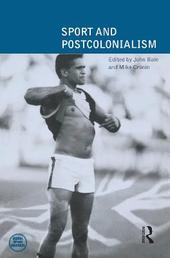
|
Sport and Postcolonialism
Paperback / softback
Main Details
Description
Compared with modes of representation such as literature, drama, poetry and dance, the world of sport has been largely neglected in postcolonial studies. At both local and global levels, however, sport has been profoundly affected by the colonial legacy. How are individual nations and different sporting cultures coping with this legacy? What does the end of colonialism mean within particular states and sports? How is postcolonialism linked with struggles of race and identity? Sport was a major tool of colonial power and postcolonialism manifests itself in the modern sporting world in several ways, including the huge number of world class athletes from former European empires and the exploitation of child-workers in postcolonial nations by the sporting goods industries. Many former colonial states place considerable importance on elite sport as a form of representation, yet a small number of such states oppose sport in its western form. This book explores the wealth of issues and experiences that comprise the postcolonial sporting world and questions whether sport can act as a form of resistance in postcolonial states and, if so, how such resistance might manifest itself in the rule-bound culture of sport. Its novel approach and topical focus makes this book essential reading for anyone interested in contemporary sports, postcolonialism, race and ethnic studies.
Author Biography
John Bale Visiting Professor of Sports Studies,University of Aarhus, Denmark and Professor of Sports Geography, Keele University Mike Cronin Senior Research Fellow, De Montfort University
Reviews'Another splendid academic study from Berg.'Programme Monthly and Football Collectable 'Bale and Cronin have provided a clear and remarkably jargon-free overview of the potential of postcolonialism for informing us about sport.'Sport, Education and Society
|